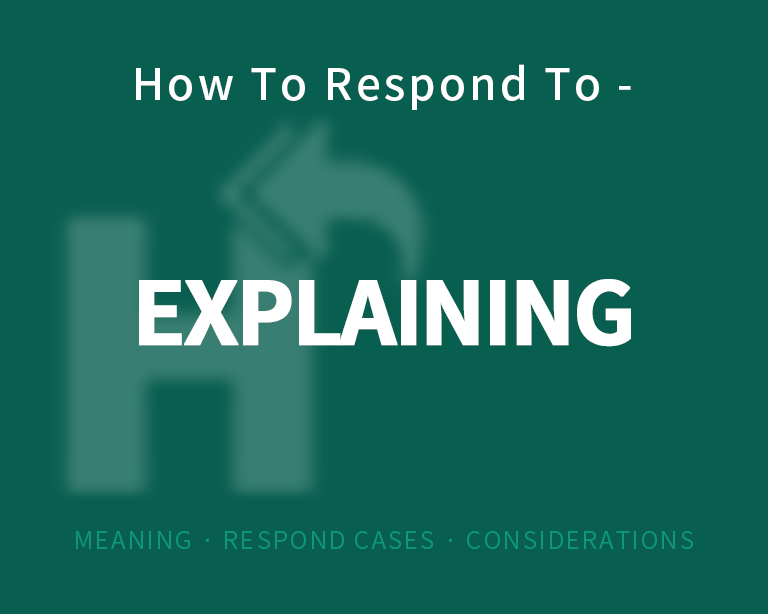The Best Way to Respond to Explaining?

Responding to explaining can be a difficult thing to do, as it requires active listening and understanding of the explanation being given. In this article, we will discuss how to respond to explaining in a conversation.
What is Explaining in a Conversation
Explaining is the act of providing information, clarification, or instruction. In a conversation, explaining can be identified by the use of descriptive language, examples, and demonstrations.
3 Specific Cases of Explaining
Case 1: Technical Explaining
Background: A coworker explains a technical process or procedure.
Suitable reply sentence: ""Thank you for explaining that. I think I understand, but can you clarify how that step fits into the overall process?""
Case 2: Instructional Explaining
Background: A friend explains how to do a task or activity.
Suitable reply sentence: ""That's helpful. Let me summarize to make sure I understand. First, I need to do this, then I do that. Is that correct?""
Case 3: Persuasive Explaining
Background: A family member explains their opinion or perspective on a topic.
Suitable reply sentence: ""Thank you for explaining your point of view. I can see where you're coming from, but I still have some concerns. Can we explore that further?""
How to Think About Responding to Explaining
When responding to explaining, it is important to be engaged and attentive, showing interest and understanding of the explanation being given. It is also helpful to ask follow-up questions and summarize the information to confirm understanding.
Considerations When Responding to Explaining
When responding to explaining, it is important to respond promptly and appropriately. Show interest and understanding of the explanation being given, ask follow-up questions, and summarize the information to confirm understanding.
Conclusion
In conclusion, responding to explaining is an important part of communication, whether it's a personal or professional setting. By being engaged and attentive, showing interest and understanding of the explanation being given, asking follow-up questions, and summarizing the information to confirm understanding, you can respond effectively to explaining. Remember that each explanation is an opportunity to learn and connect with others. Keep practicing and developing your communication skills, and you will become a master at responding to explaining.